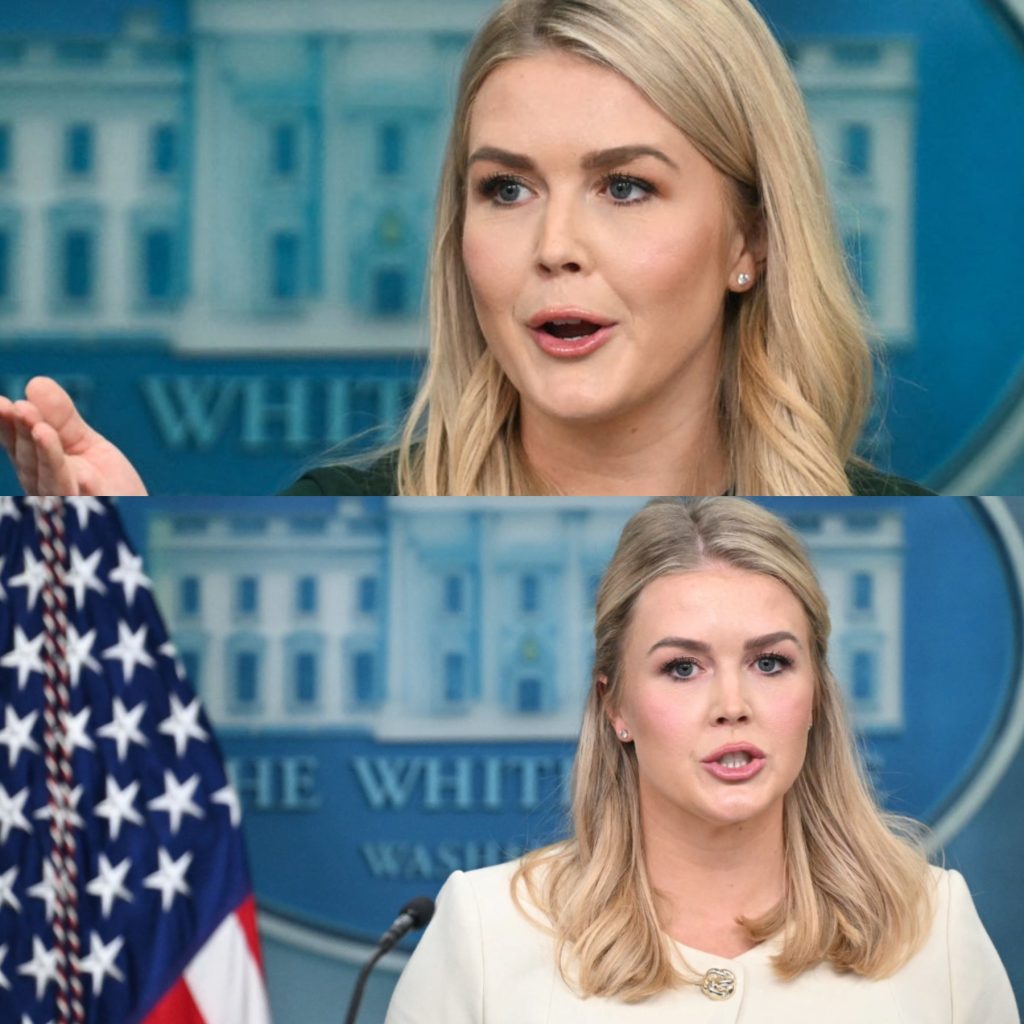🔥🚨Karoline Leavitt Shocks Social Media with Controversial Statement

Karoline Leavitt’s recent controversial statement has ignited a firestorm across social media platforms, capturing the attention of political followers, critics, and casual observers alike. Known for her outspoken nature and sharp commentary, Karoline’s latest words have not only challenged prevailing narratives but also sparked a fierce debate about her motives, beliefs, and the possible implications for her political career. What lies beneath this bold declaration? Is it a strategic move, a genuine conviction, or something else entirely?
From the very beginning of her public life, Karoline Leavitt has been no stranger to controversy. As a rising political figure, she has often found herself at the center of heated discussions—whether about policy, personality, or her affiliations. But this recent statement has pushed the boundaries even further, forcing both supporters and detractors to reassess their understanding of her.

Her statement, delivered in a manner that left many stunned, was quickly picked up and amplified by social media users eager to dissect every word. The content of her words, though direct, raised more questions than answers. What exactly did she mean? Why now? And how will this affect her standing among her base and beyond?
The online response was swift and intense. Many praised Karoline for her courage to speak her mind openly, applauding her willingness to challenge established views and push conversations into uncomfortable territory. These supporters view her as a breath of fresh air—a politician unafraid to take risks and speak truth as she sees it.
On the other hand, critics were quick to condemn the statement, accusing her of divisiveness and questioning the sincerity behind her words. Some argued that such remarks only deepen political polarization and distract from pressing issues that demand unity and cooperation. This backlash has ignited renewed conversations about the role of provocative speech in modern politics and whether the lines between boldness and recklessness are being blurred.
What makes this controversy particularly intriguing is the timing and context. Karoline Leavitt made her statement at a moment when political tensions are already running high, and public trust in leaders is fragile. It raises the possibility that her remarks were calculated to stir the pot, attract attention, or reposition herself within the shifting dynamics of her party.
The statement also highlights the power and pitfalls of social media in shaping political discourse. In an era where every utterance is instantly broadcast and analyzed, a single comment can spiral into a viral sensation—sometimes distorting the original intent and escalating conflicts.
Beyond the immediate reactions, the statement has opened up a broader conversation about authenticity, leadership, and the challenges faced by modern politicians. Karoline’s boldness forces us to consider what voters truly want in their representatives. Do they crave straightforward honesty, even if it offends? Or do they prefer measured diplomacy and consensus-building?
As this story continues to unfold, many will be watching closely to see how Karoline Leavitt navigates the fallout. Will she double down on her stance, clarifying and reinforcing her position? Or will she retreat and soften her tone in response to criticism? Either way, the controversy has already cemented itself as a defining moment in her public life.
Moreover, the episode reflects larger trends in political communication—where personality, spectacle, and viral moments often overshadow nuanced policy discussions. It challenges us to think critically about the kinds of leaders we support and the ways in which political dialogue is conducted in the digital age.
For Karoline Leavitt, this moment may well be a turning point. It offers her a platform to galvanize support among like-minded followers but also risks alienating moderates and undecided voters. The balance she strikes will likely influence her future trajectory.
In the end, Karoline’s controversial statement serves as a reminder of the power of words and the complexities of public life. It invites us to look beyond headlines and soundbites to understand the deeper motivations and implications behind political actions.
As the debate rages on, one thing remains clear: Karoline Leavitt has succeeded in capturing the spotlight, forcing a nation to reckon with difficult questions about leadership, truth, and the price of speaking out in today’s fractured political landscape. Whether you agree or disagree with her, her voice cannot be ignored.
This moment is not just about one statement or one politician. It is about the evolving nature of public discourse, the role of courage and controversy in politics, and the ongoing struggle to find common ground in a divided world. Karoline Leavitt’s story is a chapter in this larger narrative—a reminder that in politics, as in life, the bold often provoke the strongest reactions.
Watch closely as this story develops because it will shape the conversation for months, perhaps years, to come. What Karoline Leavitt says next, and how she handles the aftermath, will be telling not only for her but for the political climate at large. Her journey is a vivid example of the modern political landscape where every word matters, every moment counts, and every voice can change the course of history.
